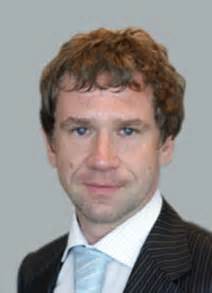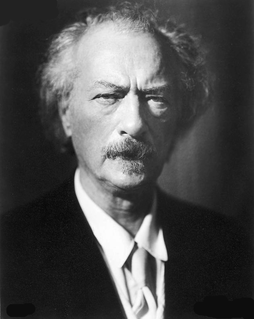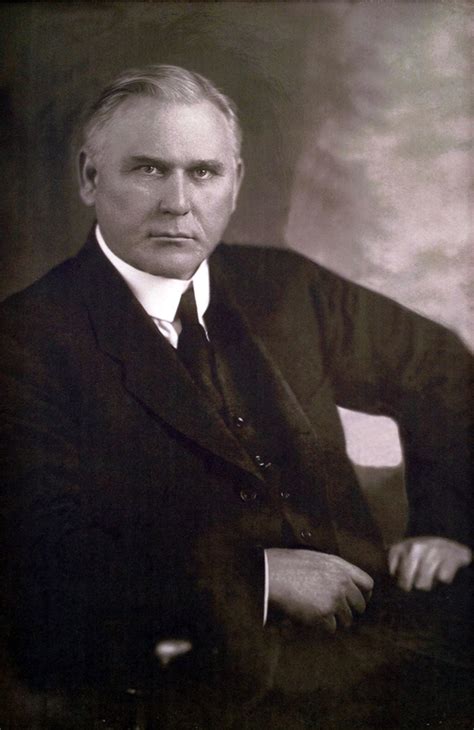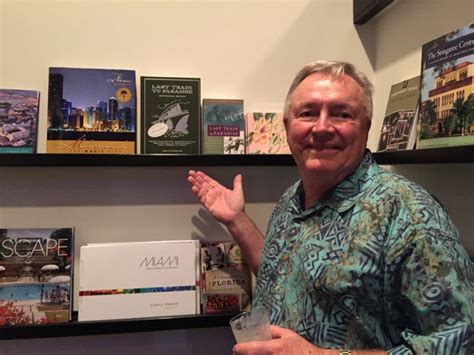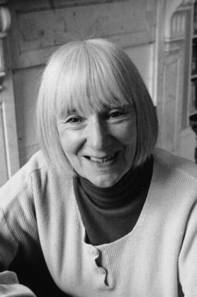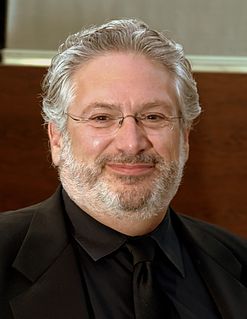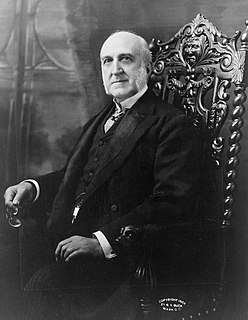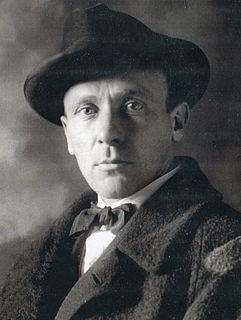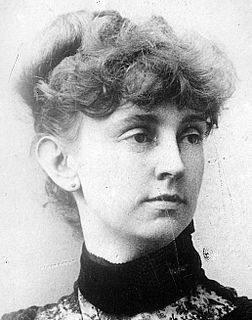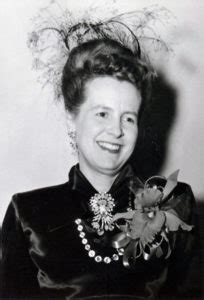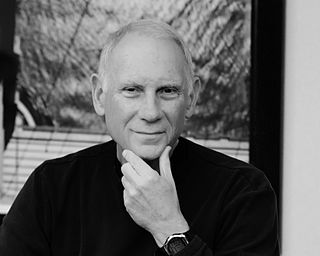Top 1200 Deeds Quotes & Sayings - Page 20
Explore popular Deeds quotes.
Last updated on November 18, 2024.
Will not the very moment of great disillusionment with my brother or sister be incomparably wholesome for me becuase it so thoroughly teaches me that both of us can never live by our own words and deeds, but only by that one Word and deed that really binds us together, the forgiveness of sins in Jesus Christ? The bright day of Christian community dawns wherever the early morning mists of dreamy visions are lifting
Even if a civil society were to be dissolved by the consent of all its members (e.g., if a people inhabiting an island decided to separate and disperse throughout the world), the last murderer remaining in prison would first have to be executed, so that each has done to him what his deeds deserve and blood guilt does not cling to the people for not having insisted upon this punishment; for otherwise the people can be regarded as collaborators in his public violation of justice.
We have seen violence and terror perpetrated by those who profess to stand up for faith, their faith. Professed to stand up for Islam, but in fact are betraying it. Humanity has been grappling with these questions throughout human history. And lest we get on our high horse and think this is unique to some other place, remember that during the Crusades and the Inquisition people committed terrible deeds in the name of Christ.
Fire and water do not mix, neither can you mix judgment of others with the desire to repent. If a man commits a sin before you at the very moment of his death, pass no judgment, because the judgment of God is hidden from men. It has happened that men have sinned greatly in the open but have done greater deeds in secret, so that those who would disparage them have been fooled, with smoke instead of sunlight in their eyes.
I go now to the halls of waiting to sit beside my fathers, until the world is renewed. Since I leave now all gold and silver, and go where it is of little worth, I wish to part in friendship from you, and I would take back my words and deeds at the Gate. . . If more of us valued food and cheer and song above hoarded gold, it would be a merrier world.
Lord Jesus, Who in the Eucharist make your dwelling among us and become our traveling companion, sustain our Christian communities so that they may be ever more open to listening and accepting your Word. May they draw from the Eucharist a renewed commitment to spreading in society, by the proclamation of your Gospel, the signs and deeds of an attentive and active charity
In the chapter on study we considered the importance of observing ourselves to see how often our speech is a frantic attempt to explain and justify our actions. Having seen this in ourselves, let's experiment with doing deeds without any words of explanation whatever. We note our sense of fear that people will misunderstand why we have done what we have done. We seek to allow God to be our justifier.
Some important ideas from the book of early Christians which is called Philokalia: From Spiritual Directions of Diadochus of Photiki The acme of faith is... immersion of the mind in God. The acme of freedom from wealth is to desire to be possessionless even as others desire to possess. The acme of humbleness is to forget unfalteringly good deeds of oneself. The acme of love is to enhance your friendly attitude to those who insult and revile you.
His words even imply that philanthropy has deeper depths than is generally realized. The great emotions of compassion and mercy are traced to Him; there is more to human deeds than the doers are aware. He identified every act of kindness as an expression of sympathy with Himself. All kindnesses are either done explicitly or implicitly in His name, or they are refused explicitly or implicitly in His name.
In this long eternal quest to be more like our Savior, may we try to be “perfect” men and women in at least this one way now—by offending not in word, or more positively put, by speaking with a new tongue, the tongue of angels. Our words, like our deeds, should be filled with faith and hope and charity, the three great Christian imperatives so desperately needed in the world today.
Every new generation in its hour of dawn, filled with the dreams of youth, its thirsts, intoxications and enthusiasms, thinks itself called upon to impel humanity towards heights unmeasured, believes itself an appointed pathfinder, a thinker of thoughts, a doer of deeds greater than any of those which came before. Every new generation desires beauty, but a beauty all its own.
That utterance of Jesus, "Render therefore unto Caesar the things which are Caesar's, and unto God the things that are God's," is one of the most revolutionary and history-making utterances that ever fell from those lips divine. That utterance, once and for all, marked the divorcement of church and state. It marked a new era for the creeds and deeds of men.
Shaytan will tell you that you’re not worthy, so give up. But his traps are based on lies. When was any of it because of *your* worth? It was all because of His mercy, His generosity, His love of giving, and forgiving. And those qualities don’t change because you’re messing up. Just seek them. Call Him by His mercy, not by your deeds.
Books are never harmless...they either strengthen us or they weaken us in our faith. Some of them do this even as they entertain us, others as they teach us. In an invisible way their teaching penetrates into our hearts and souls, to continue its work inside, and we inhale the spirit of these books as healing or poisonous vapors. They can bring the greatest benefits and the greatest ruin, for from their ideas that they spread come the deeds of the future.
Great nations write their autobiographies in three manuscripts the book of their deeds, the book of their words, and the book of their art. Not one of these books can be understood unless we read the two others; but of the three, the only quite trustworthy one is the last. The acts of a nation may be triumphant by its good fortune; and its words mighty by the genius of a few of its children: but its art, only by the general gifts and common sympathies of the race.
Nicias, do you think you can erase with good deeds the wrongs you committed against your mother? What good deed will ever reach her? Her soul is a scorching noon time, without a single breath of a breeze, nothing moves, nothing changes, nothing lives there; a great emaciated sun, an immobile sun eternally consumes her.
Whatever may be your desire to accomplish great deeds, the deep silence of pregnancy never comes to you! The event of the day sweeps you along like straws before the wind whilst ye lie under the illusion that ye are chasing the event,-poor fellows! If a man wishes to act the hero on the stage he must not think of forming part of the chorus; he should not even know how the chorus is made up.
Maybe it's because we as writers are alone so often, are so attuned to listening to the run of our own thoughts, that we find it more natural to write down the thoughts rather than the deeds of our characters. But speaking as a teacher who has spent some twenty years slogging through manuscripts where thoughts and exposition pile up as thick as the aftermath of a California mudslide, I can attest to the power of the evocative detail, gesture, or figment of speech.
Pauline kept a scrapbook into which she pasted important articles that she had cut out of the newspapers. These were about the courageous deeds that had been done by people even if they only had one leg or couldn't see or had been dropped on their heads when they were babies. 'It's to make me brave,' she'd explained to Annika.
We must cast away everything which hinders us upon our road towards heaven – the lust of the flesh, the lust of the eye and the pride of life; the love of riches, pleasures and honors, the spirit of lukewarmness and carelessness and indifference about the things of God – all must be rooted out and forsaken if we are anxious for the prize. We must mortify the deeds of the body, we must crucify our affections for this world.
A principal aim of education is to give students a taste for literature, for the books of life and power, and to accomplish this, it is necessary that their minds be held aloof from the babblement and discussions of the hour, that they may accustom themselves to take interest in the words and deeds of the greatest men, and so make themselves able and worthy to shape a larger and nobler future; but if their hours of leisure are spent over journals and reviews, they will, in later years, become the helpless victims of the newspaper habit.
While God is not the author of evil and He never prompts or condones sin, nothing occurs without His sovereign oversight. Others may choose to do evil deeds and God's people may suffer in the short term, but He will transform the evil intentions of evil people into opportunities for the enrichment of those in His care.
The real point is that you cannot harbor malice toward others and then cry foul when someone displays intolerance against you. Prejudice tolerated is intolerance encouraged. Rise up in righteousness when you witness the words and deeds of hate, but only if you are willing to rise up against them all, including your own. Otherwise suffer the slings and arrows of disrespect silently.
Divine Providence is connected with Divine intellectual influence, and the same beings which are benefited by the latter so as to become intellectual, and to comprehend things comprehensible to rational beings, are also under the control of Divine Providence, which examines all their deeds with a view of rewarding or punishing them. ...the method of which our mind is incapable of understanding.
These ceremonies and the National Statuary Hall will teach the youth of the land in succeeding generations as they come and go that the chief end of human effort in a sublunary view should be usefulness to mankind, and that all true fame which should be perpetuated by public pictures, statues, and monuments, is to be acquired only by noble deeds and high achievements and the establishment of a character founded upon the principles of truth, uprightness, and inflexible integrity.
For, when men shall meet as they ought, each a benefactor, a shower of stars, clothed with thoughts, with deeds, with accomplishments, it should be the festival of nature which all things announce. Of such friendship, love in the sexes is the first symbol, as all other things are symbols of love. Those relations to the best men, which, at one time, we reckoned the romances of youth, become, in the progress of character, the most solid enjoyment.
This book is not about heroes. English poetry is not yet fit to speak of them. Nor is it about deeds, or lands, nor anything about glory, honour, might, majesty, dominion, or power, except War. Above all I am not concerned with Poetry. My subject is War, and the pity of War. The Poetry is in the pity.
I'm looking for a second reformation. The first reformation of the church 500 years ago was about beliefs. This one is going to be about behavior. The first one was about creeds. This one is going to be about deeds. It is not going to be about what does the church believe, but about what is the church doing.
The true Christians are the true citizens, lofty of purpose, resolute in endeavor, ready for a hero's deeds, but never looking down on their task because it is cast in the day of small things; scornful of baseness, awake to their own duties as well as to their rights, following the higher law with reverence, and in this world doing all that in their power lies, so that when death comes they may feel that humanity is in some degree better because they lived.
And who can deny that Stalin and Mao, not to mention Pol Pot and a host of others, all committed atrocities in the name of a Communist ideology that was explicitly atheistic? Who can dispute that they did their bloody deeds by claiming to be establishing a "new man" and a religion-free utopia? These were mass murders performed with atheism as a central part of their ideological inspiration, they were not mass murders done by people who simply happened to be atheist.
Surely if living creatures saw the results of all their evil deeds, they would turn away from them in disgust. But selfhood blinds them, and they cling to their obnoxious desires. They crave pleasure for themselves and they cause pain to others; when death destroys their individuality, they find no peace; their thirst for existence abides and their selfhood reappears in new births. Thus they continue to move in the coil and can find no escape from the hell of their own making.
Loyalty to God is alone fundamental. Feelings, words, deeds, must be beads strung on the string of duty. Let the world tell you in a hundred ways what your life is for. Say you ever and only, "Lo, I come to do Thy will, O my God." Out of that dutiful root grows the beautiful life, the life radically and radiantly true to God--the only life that can be lived in both worlds.
Everything that from eternity has happened in heaven and earth, the life of God and all the deeds of time simply are the struggles for Spirit to know Itself, to find Itself, be for Itself, and finally unite itself to Itself; it is alienated and divided, but only so as to be able thus to find itself and return to Itself...As existing in an individual form, this liberation is called 'I'; as developed to its totality, it is free Spirit; as feeling, it is Love; and as enjoyment, it is Blessedness.
Superior leaders get things done with very little motion. They impart instruction not through many words, but through a few deeds. They keep informed about everything but interfere hardly at all. They are catalysts, and though things would not get done as well if they were not there, when they succeed they take no credit. And, because they take no credit, credit never leaves them.
As we move toward the future, we must not neglect the lessons of the past. Our Heavenly Father gave His Son. The Son of God gave His life. We are asked by Them to give our lives, as it were, in Their divine service. Will you? Will I? Will we? There are lessons to be taught, there are kind deeds to be done, there are souls to be saved.
Assuredly there is but one way in which to achieve what is not merely difficult but utterly against human nature: to love those who hate us, to repay their evil deeds with benefits, to return blessings for reproaches. It is that we remember not to consider men's evil intention but to look upon the image of God in them, which cancels and effaces their transgressions, and with its beauty and dignity allures us to love and embrace them.
See how he cowers and sneaks, how vaguely all the day he fears, not being immortal nor divine, but the slave and prisoner of his own opinion of himself, a fame won by his own deeds. Public opinion is a weak tyrant compared with our own private opinion. What a man thinks of himself, that it is which determines, or rather indicates, his fate.
Through books you will meet poets and novelists whose creations will fire your imagination. You will meet the great thinkers who will share with you their philosophies, their concepts of the world, of humanity and of creation. You will learn about events that have shaped our history, of deeds both noble and ignoble. All of this knowledge is yours for the taking… Your library is a storehouse for mind and spirit. Use it well.
Character is distilled out of our daily confrontation with temptation, out of our regular response to the call of duty. It is formed as we learn to cherish principles and to submit to self-discipline. Character is the sum total of all the little decisions, the small deeds, the daily reactions to the choices that confront us. Character is not obtained instantly. We have to mold and hammer and forge ourselves into character. It is a distant goal to which there is no shortcut.
But the closer we study their lives, and the better we know their deeds, the more profound is our admiration and the greater our reverence for the Pilgrim fathers. Between the drafting of their immortal charter of liberty in the cabin of the Mayflower and the fruition of their principles in the power and majesty of the republic of the United States of to-day is but a span in the records of the word, and yet it is the most important and beneficent chapter in history. To be able to claim descent from them, either by birth or adoption, is to glory in kinship with God's nobility.
People should not worry as much about what they do but rather about what they are. If they and their ways are good, then their deeds are radiant. If you are righteous, then what you do will also be righteous. We should not think that holiness is based on what we do but rather on what we are, for it is not our works which sanctify us but we who sanctify our works.
This surface good-nature which captivates a new acquaintance and is no bar to treachery, which knows no scruple and is never at fault for an excuse, which makes an outcry at the wound which it condones, is one of the most distinctive features of the journalist. This camaraderie (the word is a stroke of genius) corrodes the noblest minds; it eats into their pride like rust, kills the germ of great deeds, and lends a sanction to moral cowardice.
The charming landscape which I saw this morning is indubitably made up of some twenty or thirty farms. Miller owns this field, Locke that, and Manning the woodland beyond. But none of them owns the landscape. There is property in the horizon which no man has but he whose eye can integrate all parts, that is, the poet. This is the best part of these men's farms, yet to this their warranty-deeds give no title.
Matthew kept hinting that his desire - for blood, chiefly- was so strong that it put everything else at risk. But vampires weren’t the only creatures who had to manage such strong impulses. Much of what qualified as magic was simply desire in action. Witchcraft was different- that took spells and rituals. But magic? A wish, a need, a hunger too strong to be denied- these could turn into deeds when they cross a witch’s mind.
In marriage for example, you say 'Yes' on the day you get married, 'I do', but each day you implicitly if not explicitly, also say 'Yes', by every act that one performs in a marriage, one is saying 'Yes', making a cup of coffee for one's wife or husband is a form of saying 'Yes' to the marriage vow that one is continuing the marriage by affirming it in one's deeds. And exactly the same in the religious life.
What I am in search of is not so much the gratification of a curiosity or a passion for worldly life, but something far less conditional. I do not wish to go out into the world with an insurance policy in my pocket guaranteeing my return in the event of a disappointment, like some cautious traveller who would be content with a brief glimpse of the world. On the contrary, I desire that there should be hazards, difficulties and dangers to face; I am hungry for reality, for tasks and deeds, and also for privation and suffering.
Antagoras the poet was boiling a conger, and Antigonus, coming behind him as he was stirring his skillet, said, "Do you think, Antagoras, that Homer boiled congers when he wrote the deeds of Agamemnon?" Antagoras replied, "Do you think, O king, that Agamemnon, when he did such exploits, was a peeping in his army to see who boiled congers?
The soul grows into lovely habits as easily as into ugly ones, and the moment a life begins to blossom into beautiful words and deeds, that moment a new standard of conduct is established, and your eager neighbors look to you for a continuous manifestation of the good cheer, the sympathy, the ready wit, the comradeship, or the inspiration, you once showed yourself capable of. Bear figs for a season or two, and the world outside the orchard is very unwilling you should bear thistles.
Those whose thinking is disciplined by science, like all others, need a basis for the good life, for aspiration, for courage to do great deeds. They need a faith to live by. The hope of the world lies in those who have such faith and who use the methods of science to make their visions become real. Such visions and hope and faith are not a part of science.
To love one maiden only, cleave to her, And worship her by years of noble deeds, Until they won her; for indeed I knew Of no more subtle master under heaven Than is the maiden passion for a maid, Not only to keep down the base in man, But teach high thought, and aimable words And courtliness, and the desire of fame, And love of truth, and all that makes man.
If we have chosen the position in life in which we can most of all work for mankind, no burdens can bow us down, because they are sacrifices for the benefit of all; then we shall experience no petty, limited, selfish joy, but our happiness will belong to millions, our deeds will live on quietly but perpetually at work, and over our ashes will be shed the hot tears of noble people.
Knowledge is power." Rather, knowledge is happiness, because to have knowledge - broad, deep knowledge - is to know true ends from false, and lofty things from low. To know the thoughts and deeds that have marked man's progress is to feel the great heart-throbs of humanity through the centuries; and if one does not feel in these pulsations a heavenward striving, one must indeed be deaf to the harmonies of life.
This tremendous event is still on its way, still wandering; it has not yet reached the ears of men. Lightning and thunder require time; the light on the stars requires time; deeds though done, still require time to be seen and heard. This deed is still more distant from them than the most distant stars - and yet they have done it themselves.
Time is not measured by the years that you live But by the deeds that you do and the joy that you give- And each day as it comes brings a chance to each one To love to the fullest, leaving nothing undone That would brighten the life or lighten the load Of some weary traveler lost on Life's Road- So what does it matter how long we may live If as long as we live we unselfishly give.
Because of our belief in being separate, we fall into all kinds of harmful actions and deeds that create more problems for us. Competitiveness is a big one—trying to get ahead of others, stepping on each other. We become frustrated and angry with each other. We try to control others; we condemn them. All of these things stem from one false belief, “I am apart, separate from everything else.







